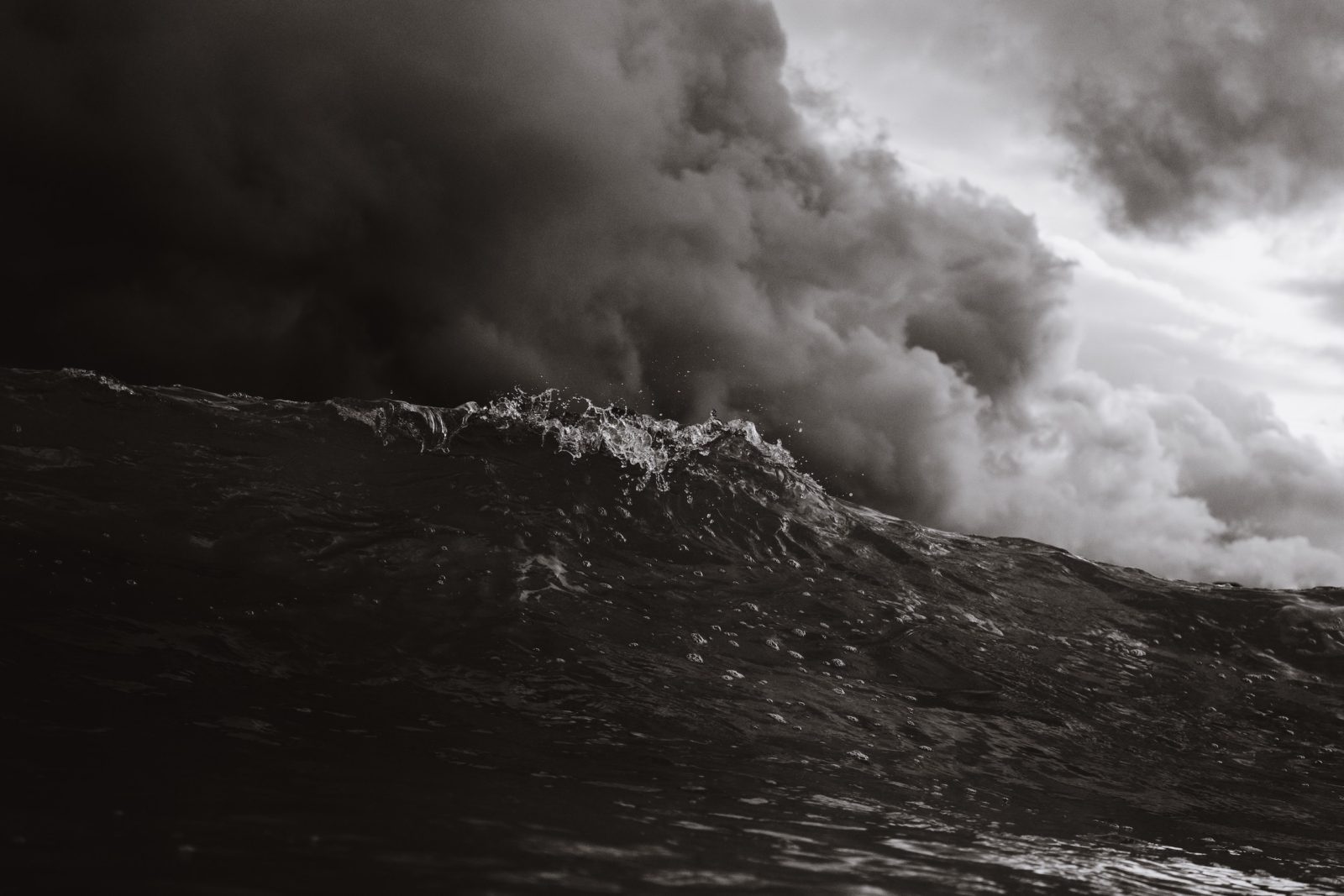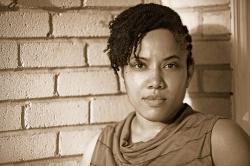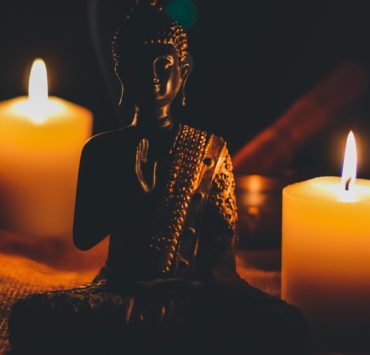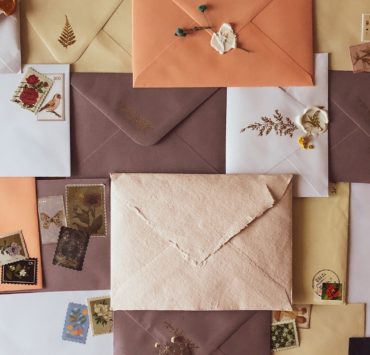
Gilbert hit. I weighed 85 pounds. It was devastating. It took almost all the trees down. What the flood didn’t wash away, damage, ruin, break and cause to rot, the 80 miles an hour winds uprooted and threw into the sea, the river, the street, the houses, the gullies and the fields. I was just glad that people had something else to fuss over other than my bones, my knees being bigger than my thighs, my veins showing blue through my skin pressed tight across my bones. Now they had to worry about the water muddy with sewage, their homes being damaged so badly they had no roofs to cover them and the mosquitoes being everywhere and spreading diseases like malaria and dengue and some said AIDS but no one knew for sure. It was the fall of 1988.
They walked through the tree littered streets in old dirty clothes and muddy sneakers. Their hair was uncombed. It sat on their heads in pink and yellow and green giant plastic rollers under tight mesh scarves. Or it sat in dusty clumps, all thirsty kinks and knots. Or it lay limp and dull on their head until an absent-minded hand ran through it quickly.
Mine was gone, wiped clean from my head with my father’s shears. It was September 11th, the day before the hurricane, and I was 88 pounds. I couldn’t stop. I knew it when I got off the scale and I knew it when I washed my thinning hair in the shower. I couldn’t stop. So I ran the shears over my scalp, over and over again. And when the storm came, I was bald. But it was the least of everybody’s trouble.
Things were bad everywhere.
This was the year I was set to graduate. This was the year that I had to take nine O’ levels and pass so that I could graduate. I was sixteen. It was heavy on me. But when the storm came it was something else to think about. I went to bed bald with the radio running on with warnings. Batten up. Winds in excess… Flood warnings… Head on hit. I slept like a worn out child.
In the morning no one mentioned my bald head. I ate a peg of grapefruit for breakfast. The ackee and salt fish and festivals went untouched. My mother wanted to know how I could possibly sleep. The zinc roof was ripped from the living room and half the house was flooded. The dogs were almost killed when the plum tree crashed into the backyard. And I slept, dead to the world. There was a storm like she’d never seen in all her years beating the island. She wanted to know how I could possibly sleep. I ran my hand over my clean head and said nothing.
The ackee and salt fish and festivals sat cold until Dad ate them. I watched them disappear.
The eye kept me awake. It was the wait. Silence, like a threat, pressed up against my throat. The rain stopped. No wind. I looked through the boarded window onto the street. People were standing outside their house, looking, hands akimbo. Someone, a woman crying, sat on the sidewalk. Brown dogs from both next doors sniffed the trees that use to be in their backyards.
I waited. The eye moved over us, the quiet hub of the hurricane.
The rain and wind whipped up again. I was relieved that the wait was over and that the worst would now come and go.
I sat through hours of the second half in the dry tub. The door was latched to keep it from flying open. Inside, I heard the outside rip and roar and howl. The rain’s sound was a city of dragging feet scraping across asphalt and concrete. Against the zinc roofs, it was the steady streaming sound of fish frying.
When I came out, they were hunched around the kerosene lamp at the kitchen table. Mum or dad had cooked the meats in the refrigerator to keep them from going bad. The food filled the table. They ate. My sister picked off a piece of ham with her hands, ate it and took another. My mother watched and said nothing. The wind shook the back door. My father cracked the bones of the chicken leg in his mouth. He sucked the marrow, slurping. The rain beat against the shut aluminum windows.
I went to bed with no words and no food. Overnight the rain softened and the wind wound down, but I tossed and twisted in my sheets till morning. There was nothing to calm me. My heart hammered all night.
The next day we checked for damage. The scale read 84 pounds. The living room was flooded. Pieces of our zinc roof were in the yard across the street. My heart wouldn’t stop pounding. Our dogs had shat and vomited all over the verandah. And fat flies feasted on the mess. My mother was crying over the kitchen sink. The island had lost all power and phone service. We were cut off from the world. My father sat with his back to her, still eating the meats cooked the night before. His hand wouldn’t stop moving from the food to his mouth. A fly circled the cured and cooked flesh. The voice from the battery-run radio announced, “This was the worst natural disaster in Jamaica’s history, half a million without homes, 26 dead, damage in the millions, no light, no power…, back on the Atlantic…, strengthening….”
“At first it was a tempest, off the coast of Africa. Then it was a storm off the coast of the Lesser Antilles. Then it was the most intense hurricane to ever travel the Atlantic, beating all records” for its feeding off the warm ocean currents. “The lowest barometric pressure in the history of hurricane record-keeping.” For days the news fed us its story.
At first I was worried that I would fail. It started as a dream that I was naked and paralyzed in the street. It started as a dream that I was falling and falling and flailing. There was no ground to catch me. Then it was a summer of summer classes all day and tutoring into the night. Then I was thinner and someone said I looked good. Then I was straight A’s. Then I looked A okay. And then I remembered to miss meals to stay on top. And then, and then, and then, I no longer dreamt I was falling. And then I was in the eye of it. I was feeding off an ocean of anxiety.
My heart hammered.
My aunt from Brooklyn visited us the summer before the storm. We picked her up from the airport. She hadn’t seen me in years. When she hugged me, her hands ran down my back. Then they spanned my waist.
“You’re too thin,” she told me.
Her hands moved to my hips. Her thumbs pressed against the points of my pelvis, against the slipping waistline of my jeans.
“You don’t look well.” She stared into my face.
Her grip held me in place. I didn’t know what to say. She looked at mom and dad standing beside me and their eyes looked pleading. She brought a piece of newspaper out of her purse and pressed it into my palm.
“There was a woman who died. Make sure you read this.”
It was an obituary. A singer. A white woman in America with eyes as big and a face as stretched as mine. At first she collapsed on stage while singing, “Top of the World”. Then they thought she was getting well. And then one day they found her naked and dead to the world on the floor of her walk-in closet. Worlds away from me. Her heart failed.
When Gilbert hit, I weighed 20 pounds less than the singer who died. My heart kept hammering. I couldn’t stop.
It was just a tempest, till it traveled the sea. It was just a storm off the Lesser Antilles. Then it fattened in the ocean. Then it was a hurricane shedding water and eating trees and eating roofs and eating lives. And then it was much-needed rain in the Midwest of the US. And there it died, starved for water.
My father believed in the ocean. It would clean you. It could cure you.
When I had a cold, we went to the beach.
“The ocean will fix you up,” he told me. Then he held my hand and walked me into the waves. It was warm. It was alive against my skin.
“Go under. Don’t be afraid,” he told me. Then he pressed my head till it sank into the sea. It was cold, then warm, in my hair. It rushed and roared into my ears. I gave in to it. I curved into a ball and grabbed my knees. I was a ball, bobbing, buoyant. I floated free.
When I came up for air, he smiled. “Good.”
“I’m better,” I smiled back. I felt the snot running out the channels of my nose.
He smiled again, “Good.”
I smiled back and let the snot drain down my chin into the sea. I watched it thin out and disappear.
Gilbert left. I was down to 82 pounds.
My heart hammered all night. I dreamt till daylight. I dreamt the singer who died was in my yearbook and no one knew who she was and no one noticed her but me. She was flat and dull against the page and all I knew about her was her thin smile in the black and white picture of her face. But I knew her in another way. In another way I knew her face. I dreamt that I tried to ask who she was, but no words would come out of my mouth. I tried to ask with my eyes, but they kept smiling and everyone kept smiling back even though I heard them whispering, “Something’s wrong…”
In the morning, my mother woke me up with my bathing suit in her hand. “We’re going to the beach.”
I’d never seen the shore so clean and the sky so clear.
“Good washing, I give Gilbert that, at least,” my father said. He took my hand. We walked me into the waves. It was cold and choppy. It pushed against us.
“Just keep going,” he pulled me along. At that moment I was a little girl, falling behind, trying to keep up, not wanting to complain that this is too hard and that I want to be carried just for now, please. The water splashed into my eyes and my nose. I coughed and spat.
“You can make it,” his gripped tightened. And I pushed ahead against the tide, deeper into the sea. We stopped and a wave swelled a few feet away, crested high, then swallowed us. A swirling. A switch of worlds. From sunshine to dark. Blues blinding and choking and snatching and pressing and lifting and taking over. When it crashed, I spat and gulped for air. Dad kept his hold.
My heart hammered against the surge and I felt myself spinning and slipping. Something was wrong. I opened my eyes and Dad was Oceanus commanding the waves. I blinked and he was my father again. He towered over me, his grip, tight. An inescapable lifeguard. The wet hair on his chest sat in swirls of gray and black, curly and glistening. He was bald and his belly stuck out, but his brown eyes looked as young as mine. For a minute, I saw us both bald, standing deep in the crashing waves, looking like pieces of each other.
A wave of nausea overwhelmed me and I vomited bile. It was white and sour and sticky and salty. Dad let go of my hand and stepped back. We both watched as it trailed from my chin into the sea, thinned in the water and disappeared.
He asked if I was better.
I shook my head and wiped my lips with the back of my hand.
“I want to go home.”
Talk of the Town was the only local bakery, but for days after the hurricane, it was closed. For days after the hurricane, I would walk the length of the street, slowly, taking in the bright skies which spread without stopping, which spread without being broken by a single tree, which spread like a still sea of blue without its floating rafts of white. And when I got to Talk of the Town, I would press my face against the glass doors, look past the red and white “Closed” sign and watch the empty shelves. We waited for bread, like we waited for clean water, like we waited for the power to return.
In the meantime, my mother made festivals. She mixed the cornmeal she’d bought for the dogs with a little sugar and a little water and a pinch of salt, a pinch of baking powder and a pat of butter. She stood silent over the kitchen counter and kneaded it, pushing and pulling the dough over and over again. Shaping and reshaping it until it was enough. She made festivals for breakfast, for lunch and for dinner. She served festivals with fish, festivals with chicken, festivals with any meat we had. It became our rice and our bread when we found ourselves with no rice and no bread and just the cornmeal meant for the dogs.
She worked in her housedress, the one crowded with faded flowers, and seemed anchored to the stove.
Each morning I’d wake up to the sound of her in the kitchen. The loud hiss of hot oil attacking raw dough. The shuffle of worn-out bed slippers sliding across tile flooring and, briefly, the ting tin of her teaspoon hitting the sides of her coffee mug. And the sipping slurp that came after it.
Every morning I’d wake up and take inventory of my bones. Collarbones. Ribs. Stomach cove. Hipbones.
Shallow breaths.
Hummingbird heart.
Every morning I rubbed my pelvic bones like worry stones and lingered a little in bed.
School was still out. No one came to get me up.
When I would finally make it into the dining room and try to walk pass the kitchen, I’d watch for her looking. And sometimes she would throw me a look: “Eat.” Or sometimes she would offer me a plate: “Eat.” Or sometimes she would look away and turn to the stove and turn the festivals so that they wouldn’t burn: “Eat.”
We were trying to recover. And my dad took me fishing for doctor fish.
It was a month after the storm. All the trees were cleared from the streets and the broken branches were being cut down. We had some power, but school was still out. Some things were like they were before, but some things were still broken. We had some power back and the news carried stories about too much time out of school, what’s going to happen when exams roll around, it’s better to get them back as soon as possible; it’s better to get them back to normal. We had our roof back and my mom went back to following me around the house asking what’s wrong and why you don’t eat and why you making us sick with worry and what’s going to happen if you don’t just eat something? And my dad sometimes listened and watched and sighed and said, “Everybody have them cross to bear.” And Mom would run her veined hands over her face and hunch her shoulders. And then I was heavier than I’ve ever been; the heaviest cross she ever had to bear.
She had a red bathing suit that she wore the summer she was 16, the same summer Jamaica got its independence. She was thin then. And, lucky for me, she keeps everything. It was still in the plastic bag it came in with mothballs to guard it. And, lucky for me, everything old is new again. It had a simple hourglass cut and the legs and crotch were the same length. It banded around my torso, butt and hips.
We were in Jamaica and, lucky for me, we saw a lot of old matinees with American movie stars like Marylyn Monroe, Greta Garbo, Grace Kelly and Ingrid Bergman and they wore bathing suits like the one my mom wore when she was sixteen and that I then wore when I was sixteen and she was then 42. And it was fashionable again. And, lucky for me, it fit, again. And, lucky for us, we were in Jamaica and we had a TV station and cinemas and we got to see stars like Madonna, who was like a virgin over and over again, and Michael J. Fox, who was zooming back and forth to the future in the revamped carcass of a DeLorean. And everything old was new again and time was as fluid and endless as the sea. And, lucky for us, everything old was new again and time was as fluid and endless as the sea and though everything sometimes changed, it would all remain the same.
“We’re going to the beach.” Dad was in his trunks; Mom, her housedress. I had just come home from church with the wafer and wine still staining my tongue. I sat on my bed, savoring the Holy Communion and the loose way my Easter dress draped over me and the loose way the altar boys looked at me and the loose way the altar girl vestments had swam around me and the loose way feeling like a good girl made me feel. They came to the door and stood like guards watching over me and stood like a wall blocking me in. Dad had on his swimming trunks. Mom handed me hers, the one she wore when she was my age, when Jamaica finally got its independence, when change seemed poised to sweep over the island and her. It was still folded in the plastic package it came it. It was as good as new.
When we went to the beach that Easter Sunday, the sky and the water were the clearest and calmest I’d seen them since Gilbert. I thought he would make me go in. But he told me to do whatever I wanted. A couple of Rastafarians were standing beside an old wooden fishing boat. They were dark and glistening with sand and salt. Their hair fell in thick brown and black locks down their backs and over their shoulders. As soon as they saw Dad, they smiled and shouted, “Hail up, bredren!” They seemed like old friends. My Dad hugged them both. Smiles shone everywhere. Then they pushed the boat out into the waves. When they were in and rowing away, dad shouted back to me: “We going fishing for some doctor! Relax ‘till we get back!”
Recovery was hard. Recovering is hard.
Gilbert was gone and I was still 16. The school year was almost over. It was almost summer again and some of the trees had grown back and some of the grass had grown back and some of the roofs had been put back and almost all of the power was back.
I was better, but I wasn’t better. I wore Dad’s suit jacket, the one he wore when he worked for the power company. I wore it all the time, even over my school uniform and even after Sister St. Vincent called me Suzy-Q from across the cafeteria and told me to take that jacket off because this is the tropics and it is not cold, it is never cold and I have need for it and no business wearing it. I kept it on even after I stood in the bathroom stall and heard the whispers about all the girls who got pregnant during the month after Gilbert when the power was out and we were stuck in the dark with hardly a thing to do to keep from going mad except throw some caution to the wind, like them girls who now pregnant and I bet you that girl with the jacket, you know the one getting fatter and fatter, I bet any money, she one of them, for sure. I wore the jacket all the time and it kept some of the chill off. Even so, my fingernails were blue and I shivered in the sunshine.
On the first day of summer vacation, I went to the beach. I wore my own bathing suit and my father’s old suit jacket, the one he wore when he worked for the power company. It kept some of the chill off as I walked along the paved road that ran for three miles from our house to the nearest beach. And when I got there, I tilted my head towards the sun: I wanted to be washed in warmth. I listened and watched as the waves washed in and over the sand and in and over each other, rolling and unfurling and curling and tumbling back.
I breathed deeply and pulled a sigh from the well inside me. I sent it out with a gust of air. I felt time flow before me and around me, rolling and unfurling, curling and tumbling back.

Racquel Goodison is on faculty at the Borough of Manhattan Community College. She has been a resident at Yaddo, Millay, and the Saltonstall Arts Colony. Additionally, she was a recipient of the Astraea Emerging Lesbian Writers Grant and the Archie D. and Bertha H. Walker Scholarship to the Fine Arts Works Center. Her stories, poems, and creative nonfiction have been nominated for the Pushcart and can be found in such literary journals as Obsidian, Pleiades, Boston Review, and Drunken Boat. Her chapbook, Skin, was a finalist for the 2013 Goldline Press Fiction Chapbook competition and the winner of the 2015 Creative Justice Press fiction chapbook competition. She is currently completing a collection of short stories.







